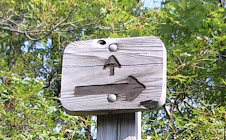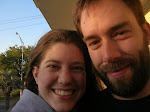Wednesday, November 19, 2008
BACK TO WORK
Well, the savings account is finally running out and so it is finally time to head back to work. I started at my former job last week, but am only doing 3-4 days a week there, since our billable workload is not all that great right now. (While I was in the woods all summer, it seems the world economy has collapsed...) Part-time is really fine with me - gives me a little more time to finish the kitchen project and can better concentrate on my teaching gig at Penn too. Plus, I’ve become convinced (it wasn’t hard) that we Americans work way too much. Compared to the rest of the developed world, we get the least amount of vacation time and work the longest hours. As a result, we suffer the worst amounts of stress and sickness. I’m not against hard work – I’m all for it actually – but I want to have a life between bouts of intense work. My real complaint is that work takes up way too much time. Not just the 8-10 hours at the job every day, but the hour or two getting ready, and the hour or two afterwards it takes to unwind. And lets be realistic – its hardly necessary. Those of us in office jobs are lucky to get 4 or 5 productive hours each day, with the rest of the time spent distracted by the internet, phone and email interruptions, snack breaks, and conversations amongst the cubes. We even decorate our cubes as a result, trying to bring our lives into the space where we spend most of it.
All this time spent at work hasn’t really earned us much either. Thirty years ago, when working-aged women often stayed home, a single salary could buy a house, one or two cars, three or four kids, and a vacation. You are fortunate if you can do that with both parents working today. And technology doesn’t help – despite all that has been invented to make our jobs more productive, the “curse of work” remains unrelieved, despite the promises of its inventers. If anything, new technology just promotes work-creep, as people are spend nights and weekends emailing and laptoping work. A friend of mine once worked for a huge accounting firm that favored this kind of over-work, promoting only those employees who fully gave their lives over to the company. How sad.
The worst is that this overwork then ruins your “free” time too. You get home each night, you’re exhausted, and you zombie out in front of the TV. The weekend (all two days and one night) is spent mostly on ignored chores, and if there is time, squeezing in the sleeping, family time, exercise, cooking, dating, sunbathing, learning, drinking, sex, hiking, reading, volunteering, hobbies, worshiping, thinking, doing nothing, and everything else that makes life wonderful. Family time is minimal, and time with extended family is squeezed into the whirlwind holiday tours which are often more stressful than pleasurable. Once or twice a year (when you can fit it in to your work schedule), you squeeze in a vacation, and often these are spent doing some hyper-active travel, sightseeing, and sped-up relaxation.
What goes missing is Play. Play is the anti-Work. Play isn’t video games or movies or sitting on your butt. Play can be hard work, but play is never Work. I consider myself an expert on Play, having spent the better part of 7 months at Play this year. I will write more about Play next.
THE IMPORTANCE OF NARRATIVES
Story-telling is a lost art. Out on the Trail, with no distractions around and only a campfire to stare at (we called it “Hippy TV”), hikers depended on stories and good conversation for entertainment. The best thing about story-telling is that it really requires two people – the person telling the story is important of course – but the listener is just as important. It’s in the listener’s head, fueled by imagination, that any story comes alive. The storyteller can supply just the thinnest of details, but within the listener’s head, the faces of characters and look of the settings become realized. It’s too bad that in regular life, people are too often content to simply be talked at for entertainment. Television especially ruins the story experience – you sit down on the couch and are talked to and shown all the action and there is rarely any participation required from the viewer. Just sit and absorb the simplistic tales, clichéd characters, and of course 30% advertising. How often will you sit and watch two hours of TV and then not remember anything of what you just watched?
In trail life, even mundane tales and bad story-telling become memorable. This is important too – because stories are how we learn about the world, pass on our traditions, and explore ourselves. Everyone can remember the short tales of our youth and the lessons that were either obvious. (I once spent a whole evening with other hikers recalling Aesop’s Fables and their little summary lessons for fun.) But it works for adults too. Since humans started using language millions of years ago, we told stories to each other: about the animals we followed for food, the constellations that mark the seasons, the examples of famous heroes and heroines, and even stories about the world’s creation. Stories are still meaningful today, despite (and perhaps due to) the distractions of modern life. One of the reasons Obama was such a compelling candidate and McCain was not, was because Obama consistently portrayed his would-be presidency as continuing the story of America. That story – our founding break from tyrrany and our ever-upward motion towards equality and freedom and opportunity, a country that always has the power to reinvent itself in the name of progress – is a very compelling narrative. It is baked into every American’s sense of self, and that view of our history has always had appeal across the globe.
As a result, Obama’s election was very emotional for so many people. It was an amazing experience to ride across North Philly after watching the returns at a friend’s house and see hundreds of people pouring into the streets to celebrate. The next day, it was like another Phillies victory - the whole city felt proud to be re-born Americans. (As my friend Frank pointed out, I got back in time for Red October and Blue November – too bad for us Iggles fans it’s not looking like a Green December.) Pretty electrifying, but since narratives are so memorable, it sets up some pretty high expectations for the new President.
Monday, November 03, 2008
A TIME FOR CHANGE
One of the joys of the Appalachian Trail was spending six months living on mountain tops. Being that high up, for that length of time, allows hikers to escape the flatland and exist in a raised dimension. We enjoyed a perspective usually reserved for gods, and were able to experience and process and think about the world in a scale beyond what daily life affords. Getting into that philosophical mindset wasn't immediate - we had to learn to think about space and time from such a scale. It took several months to get the daily routine and physical requirements of hiking to a comfortable background state, and several more to fully cleanse the mind of long-held belief systems, influences of mass media, taught educations, and the daily distractions of normal life.
I was lucky enough to share that vantage point with several other hikers who were open to thinking about our world and interested in its future. As we went along, it became clear to us that the problems now facing humanity are of a level never experienced before. I don't intend to spend time here lecturing about how we are disrupting the earth's natural systems to an extent that endangers life itself, or losing the resources that future humans will depend upon, or how so many of us are living lives without meaning while polluting our bodies and minds out of distraction or desperation. There's plenty of other places to learn about the bad news. Most of the time, we hikers didn't like to dwell on the bad things either. It should suffice to say that life as we live it, especially here in America, is simply unsustainable.
The time for change is coming, but whether it will be a catastrophic change brought upon us, or a renaissance of thought and action that we create ourselves is our choice.
What we hikers discovered this summer is the possibility for this renaissance. Americans have often led the way when it comes to revolutionary thinking - the AT itself is but one example of our capacity. It was fantastic to meet so many others this summer, who are already involved in this renaissance - people from every walk of life looking at improving life for others, for themselves, for the future. People who long for real community, for simplicity in living, for places and activities that support good lives, for a holistic approach to problem-solving and solutions that don't create more problems than they solve. It's a very encouraging sign that so many people like this exist, and were taking a summer to spend time thinking and discovering.
Obviously, this post is timed with tomorrow's election in mind - it is one of the few times we Americans can directly influence events at a large scale. I'm not going to plug any of the candidates, but instead urge my readers to go into the booth tomorrow with wide minds, thinking about the world from the vantage of mountaintops, concerned with the global scale instead of the personal, looking for candidates who will put our future ahead of any selfish present, choosing leaders who will help us move towards a more sustainable world.
Subscribe to:
Comments (Atom)


